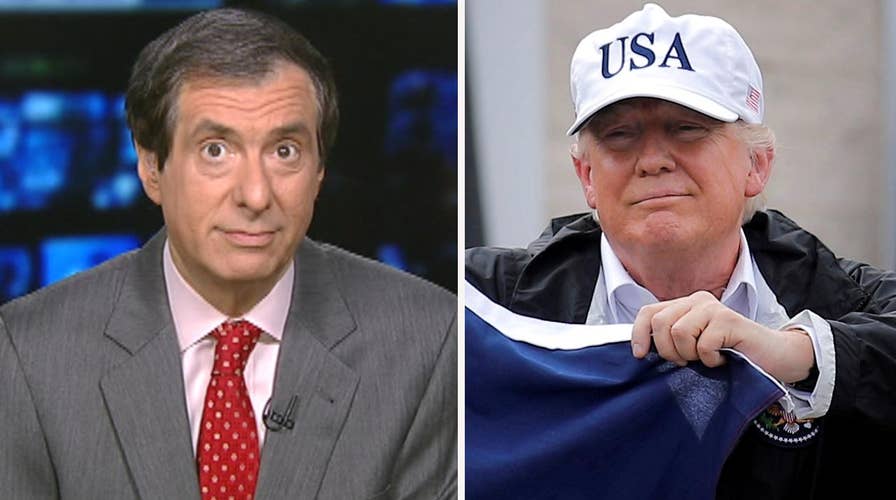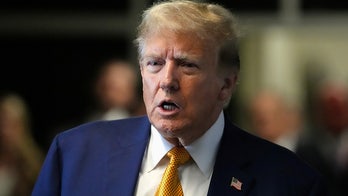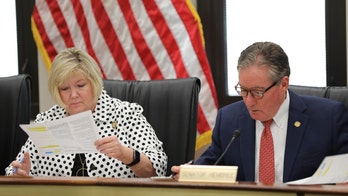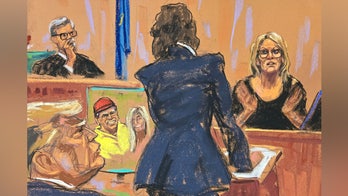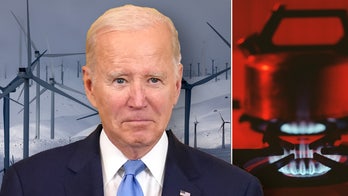Kurtz: Should presidents be required to feel our pain?
'MediaBuzz' host Howard Kurtz weighs in on the media criticizing President Trump for not showing as much empathy toward disaster victims as previous presidents
When natural disaster strikes, there is a script that political leaders are supposed to follow.
Bill Clinton would bite his lip and feel the victims’ pain. Barack Obama would hug everyone in sight. That is the media’s ideal of a compassionate president.
Donald Trump has a very different style. He acts like a CEO, checking up on his managers, setting priorities, making sure the operation is functioning smoothly. And he went to Corpus Christi against the advice of many prognosticators who said it would drain resources from the hurricane rescue efforts in Houston, though he was on the edge of the disaster zone.
So now we’re reading and hearing that the president didn’t show enough empathy.
Now empathy is a fine quality. It would have been better if Trump had addressed the loss of life. Sometimes a disaster calls for the kind of human touch that Ronald Reagan showed after the Challenger exploded.
But public displays of empathy are also about projecting an image of caring. If you have fled your Houston home and are living in a shelter, you might care more about aggressive federal relief effort that will help you rebuild your life than some hugs in front of the television cameras.
Still, Trump did climb a ladder outside a firehouse and declare: “I just want to say we love you, you are special, we’re here to take care. It’s going well.” He did draw flak for adding “what a crowd, what a turnout,” though that is something he says rather reflexively.
But for the media, questions about whether Trump could “handle” this natural disaster “test” have morphed into grading him on the empathy scale (and taking shots at Melania’s footwear).
CNN reporter Jeff Zeleny said he was struck by “very little in terms of empathy from this president. Very little in terms of emotion or talking directly to the people of Texas.”
MSNBC’s Lawrence O’Donnell said that "President Trump visited Texas but he forgot to bring any empathy with him. But he did bring a hat, a hat that is for sale."
The Washington Post sort of flunked the president: “Yet again, Trump managed to turn attention on himself. His responses to the devastation caused by Hurricane Harvey have been more focused on the power of the storm and his administration’s response than on the millions of Texans whose lives have been dramatically altered by the floodwaters …
"By focusing on the historic epicness of the hurricane, Trump has repeatedly turned attention to his role in confronting the disaster — a message reinforced by comments and tweets praising members of his administration."
The New York Times was more balanced, noting that “for the most part, Mr. Trump kept to the script. But there were a few jarring, quintessentially Trumpian moments …
"Instead of touring shelters or visiting local residents in their homes and businesses, Mr. Trump stuck close to emergency management officials — men in uniforms — and seemed most animated when he basked in the applause of an impromptu rally outside the Corpus Christi firehouse."
But the Times made up for that on the opinion side, with Frank Bruni writing that “what Trump saw in Hurricane Harvey was a mirror of his own majesty. A storm worthy of a stud like him. A meteorological complement to one of his resorts, rallies or steaks. Something really, really big."
There’s some moving of the goalposts here: With FEMA functioning well in the face of this staggering disaster and Trump having made the first of two planned Texas trips, his detractors have to find something else to criticize.
In a speech in Missouri yesterday, Trump said America is praying for those affected by the storm and talked about the loss of life.
Every president is elected in part as a reaction to his predecessor. Obama could deal with tragedy and grief in uplifting sentences but wasn’t viewed by many as a strong leader. Trump ran as a can-do businessman, not a warm and fuzzy guy. He’ll ultimately be judged in this crisis by results, not feelings.
